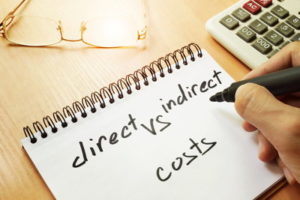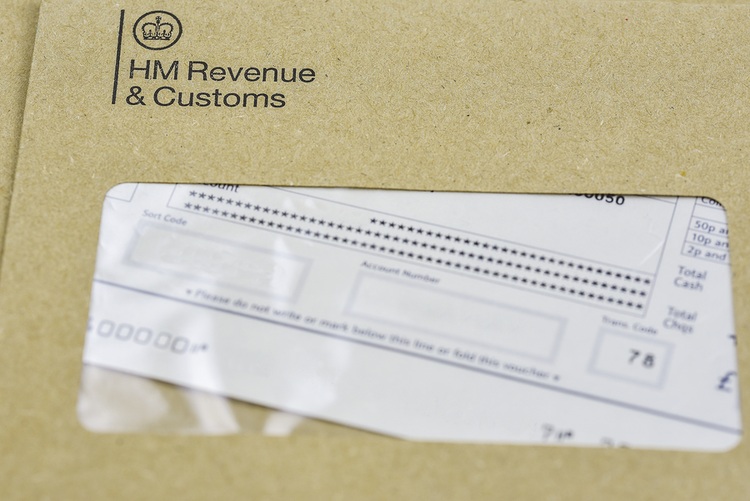 In the United Kingdom, you do not pay tax on your gambling winnings. Only that isn’t really true. You don’t need to pay anything to the tax man on money that you’ve won from gambling, but that isn’t the same as saying that no tax is paid on it.
In the United Kingdom, you do not pay tax on your gambling winnings. Only that isn’t really true. You don’t need to pay anything to the tax man on money that you’ve won from gambling, but that isn’t the same as saying that no tax is paid on it.
This is best explained by talking about the Point of Consumption tax, which came in in 2001 as a replacement for the betting levy that had been in place before and charged bookmakers on their gross profits at the point of supply to the customers, meaning that punters didn’t need to pay tax.
Just because the bookmakers are paying the tax rather than you doesn’t mean that you’re not paying it in other ways, of course. When the decision was made, it’s not as if bookies said ‘oh fair enough, we’ll cop for that’ and took on the costs of the tax.
Instead, they increased their margins and lowered odds, meaning that bettors are still paying it but in a manner that is all but hidden from them. Ironically, the decision to charge the Point of Consumption tax didn’t actually stop bookies moving abroad, which was the initial hope.
How The Gambling Tax Used To Be
 For a long time in the United Kingdom, it was illegal to place cash bets away from horse racing courses and dog tracks. In 1892, the Gaming Act created the Totalisator board, which said that bets could be made by post or via the phone.
For a long time in the United Kingdom, it was illegal to place cash bets away from horse racing courses and dog tracks. In 1892, the Gaming Act created the Totalisator board, which said that bets could be made by post or via the phone.
Perhaps somewhat unsurprising is the fact that numerous illegal bookmakers sprang up around the country as a result. The government realised that there was a large demand for off-site betting, which eventually led to the legalisation of betting shops courtesy of the 1960 Betting and Gaming Act.
When the first shops were opened, bookmakers were changed a levy at 6.75%, which bookies passed onto bettors in the form of a 9% tax. Punters were allowed to either pay 9% on their stake or wait and see what happened and potentially put it on their winnings.
Most chose to pay it on their stake in the hope of keeping costs down as much as possible, given that a 9% fee on your winnings could amount to a large chunk of money. Over time, bookmakers realised that they wanted to get away from paying a high tax if possible.
The Modern Gambling Tax Rules
 As the millennium came around, technological developments meant that most bookies were shifting the majority of their work towards telephone betting and the newly emerging online market. This, in turn, meant that tax havens like Malta and Gibraltar became popular players for bookmakers to move, giving punters the chance to place bets in a tax free manner.
As the millennium came around, technological developments meant that most bookies were shifting the majority of their work towards telephone betting and the newly emerging online market. This, in turn, meant that tax havens like Malta and Gibraltar became popular players for bookmakers to move, giving punters the chance to place bets in a tax free manner.
Victor Chandler, the man behind what is now BetVictor, moved his business to Gibraltar in 1998, which gave the then-Chancellor of the Exchequer, Gordon Brown, pause for thought.
Brown feared an exodus of bookmakers to these foreign tax havens, so he moved to legislate new gambling tax laws, which began with the abolition of the betting levy in 2001. In its place, bookmakers were asked to pay 15% tax on their gross profits in the United Kingdom, which came at the point of the service’s supply.
Bettors were delighted, given that it meant that they could place bets without having to pay any tax on their winnings, meaning that the 9% fee had gone and their winnings were their winnings without having to worry about paying any of it to the government in tax.
The irony was that the new legislation didn’t make a difference to the problem of bookmakers moving offshore. A big part of that was because the fee was at the point of supply, meaning that it was dependant on where the bookmaker was based.
This allowed them to pay the local tax rate on their profits, as opposed to the UK rate. This was a massive difference, given the likes of the Gibraltar tax rate meant that companies paid 1% to a maximum figure of £400,000. Soon, it wasn’t just the online-only operators shifting their businesses to a different country.
The country’s biggest bookmakers kept their physical shops in the country and had to pay tax on that, but they moved their online operations abroad and reduced the amount of tax that they had to pay on that side of their business. Given the fact that the online gambling industry was only going one way, growing bigger and more profitable with every passing year, this became a major problem for Brown and the Labour government. Something needed to be done, so more legislation was brought in in order to stop the bleed that the UK was seeing happen on its taxes.
That came thanks to an amendment to the 2005 Gambling Act in 2014. A new tax of 15% was introduced that was aimed at the point of consumption, rather than the point of supply. Suddenly, even the companies based offshore were having to pay tax on any profits that were made from customers based in the United Kingdom. If they failed to make that payment, they could lose their licence to operate in the UK, which would cost them a huge amount of money given the extent to which the British market was one of the biggest and most lucrative in the world.
In 2018, the new Chancellor of the Exchequer, Philip Hammond, introduced his budget that increased the Point of Consumption tax to 21%. That was for ‘games of chance’, such as poker, blackjack and slots, as well as any other fixed-odds games of chance. It came into effect on the first of October 2019, which was also the same point at which the £2 limit on Fixed Odds Betting Terminals was put in place. From the point of view of bettors, it all meant slightly poorer odds, given the fact that bookies moved to put the new costs onto their customers where they could.
